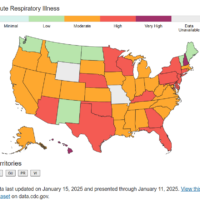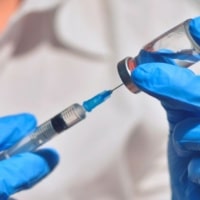Evangelical leaders in Harlan County are increasingly “getting peppered with fear-based questions from their congregations and community about the vaccine, which they try to gently bat down,” Alex Acquisto reports for the Lexington Herald-Leader.
“As the state strives toward herd immunity — once 70-85 percent of the population is inoculated — public-health experts believe trusted community leaders are vital to diffusing vaccine hesitancy. And in a state like Kentucky, faith leaders often carry more sway than elected leaders.”
Kentucky is deeply religious, and its southeast is particularly so. About half the Christians in the state identify as evangelicals, a group that polls have shown widespread concerns about getting vaccinated.
“It’s not likely to help overall hesitancy that the federal government asked on Tuesday — and Kentucky agreed — to halt its use of all Johnson & Johnson vaccines after six women in other states developed blood clots within two weeks of getting the shot,” Acquisto reports.
Gov. Andy Beshear has launched vaccine-promotion campaigns targeting the state’s religious population, but many still hesitate to get vaccinated. Some are unsure whether the vaccines are safe, overwhelmed by the glut of conflicting information from social media and other sources. Some are worried about government overreach “because they don’t trust a government they think manipulated information to rig the most recent presidential election — a falsehood that former President Donald Trump has continued to repeat,” Acquisto reports.
“There’s a lot of what we call false doctrine that’s being taught,” Friendship Missionary Baptist Church Pastor Sean Daniels told Acquisto. “I’m not saying any particular church in Harlan County teaches that. But it’s just a conclusion of a lot of the conspiracies and things they’re reading on the internet.”
In their efforts to fight the pandemic, Harlan County pastors have mostly “spoken in a unified voice, both about adjusting their definition of church during the pandemic and, now, receiving the vaccine,” Acquisto writes. “In many ways, faith leaders have acted as translators, helping people who look to them for guidance discern between what’s true and false.”
Many preachers advocate a subtle approach.
Pastor Buddy Simpson of the Wallins Church of God, who is fully vaccinated, encouraged his congregation to pray about it and decide for themselves, but also told them he believes vaccines are the safest bet. And Carl Canterbury, an EMT and traveling minister, “doesn’t talk about the vaccine from the pulpit, but if asked, he’ll tell. And many in his church have asked,” Acquisto reports. He told her, “So many people think it’s a conspiracy, and they want to know, are you getting it? The day I had my shot, I had four members in our church to stop by and ask, did I take the shot, and I told them, yes. Because I did, they did.”





